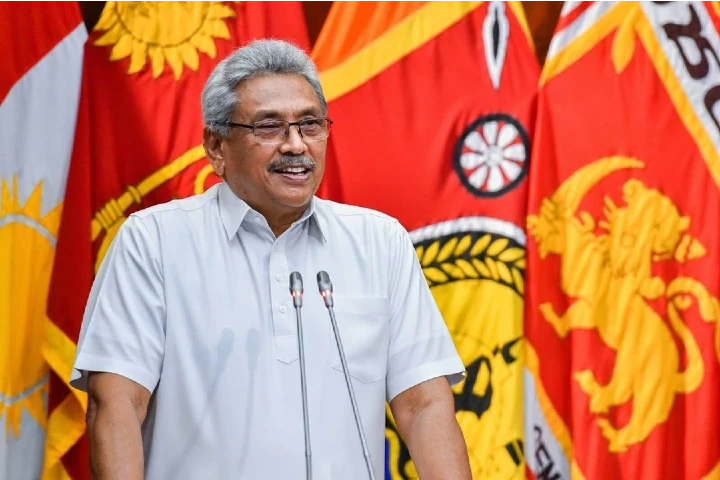As the Rajapaksa brothers—Gotabaya Rajapaksa and Mahinda Rajapaksa, defiantly hold on to their Presidential and Prime Ministerial positions respectively despite strong public opposition, they finally confront the reality of a no-confidence motion.
President Rajapaksa's party—the Sri Lanka Podujana Peramuna (SLPP), which lost its two-thirds majority in the parliament early April has continued to enjoy a simple majority till now, enabling it to withstand public and political pressure to step down. However, with the economic and humanitarian situation worsening by the day, Sri Lanka's opposition is now working seriously to bring down the brothers President Rajapaksa and Prime Minister Mahinda Rajapaksa.
Prime Minister Mahinda Rajapaksa with Chinese Foreign Minister Wang Yi in Colombo (Photo: Twitter)
Leading the charge against the two Rajapaksas are former energy minister Udaya Gammanpila and former industry minister Wimal Weerawansa who were fired from their ministerial positions in March for openly criticising Basil Rajapaksa—the then finance minister and President Rajapaksa's younger brother, for economic mismanagement.
The two former ministers claim to have cobbled together 120 MPs in a 225-member parliament where 113 MPs are required to vote the Rajapaksa government out of power.
On Monday Gammanpila told the media that with some MPs breaking away from the government and with support from parties like the Samagi Jana Balawegaya (SJB), Marxist Janatha Vimukthi Peramuna (JVP) and the Tamil National Alliance (TNA), they are confident of winning the no-confidence motion.
Sri Lankan newspapers reported on Tuesday that with the heightened opposition activity, President Gotabaya's camp is reaching out for support in a bid to save his position. The Daily Mirror also says that there is a split between the two Rajapaksa brothers.
However, Sri Lanka’s economic situation is so grave that political leaders are shying away from joining an all-party cabinet proposed by President Rajapaksa. Even now, many in the opposition say that they may not support the no-confidence because they are not clear what lies ahead. "What after the no-confidence", is a refrain from some of the political leaders.
Opposition party—United National Party (UNP) leader Ranil Wickremesinghe voiced similar sentiments. He told journalists that if the no-confidence motion is successful and the government quits, then who will take charge because the opposition parties had earlier declined to form an all-party interim government.
As the opposition still works to get its act together, people continue to join nation-wide protests across the island nation. Sri Lankans have taken over the Galle Face sea front, which also faces the top administration offices in Colombo, to register their disapproval of the government. The common refrain from the protestors is that President Rajapaksa has to go. Though the protests have been largely peaceful, occasional violence has broken out in Colombo.
The country faces its worst-ever crisis since it gained independence from Britain. With the country running out of foreign exchange, Sri Lanka has not imported essential commodities like food, medicines, oil, resulting in steep inflation, shortage of almost everything and long power cuts.
India has supported the Indian Ocean island nation in its worst times through a $1.5 billion line of credit to import oil and food items. Recently, New Delhi lent another $500 to Sri Lanka to import oil.
A Sri Lankan team, led by new Finance Minister Ali Sabry is in Washington to negotiate an urgent bail-out loan. The government is also speaking with the World Bank, China and Japan for financial assistance.




















